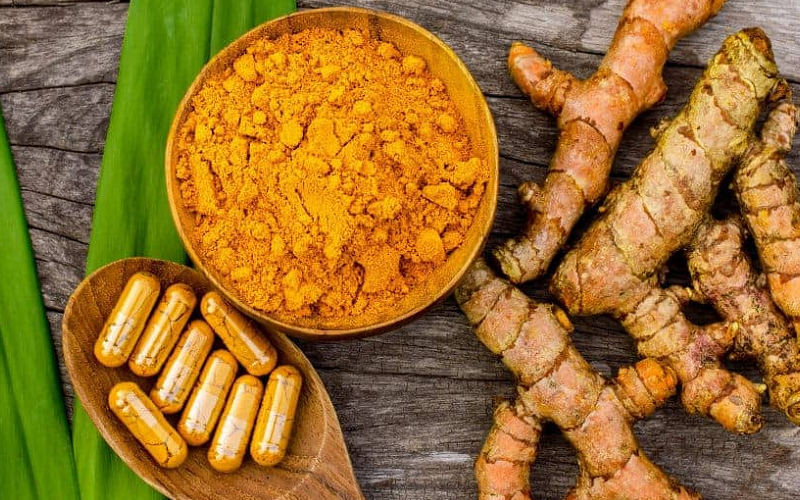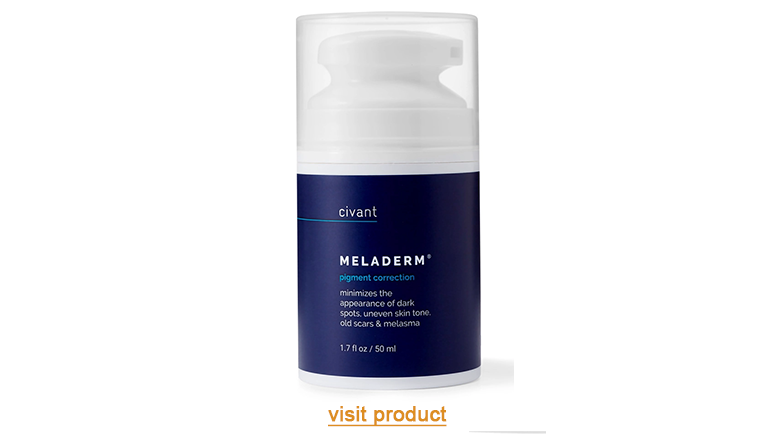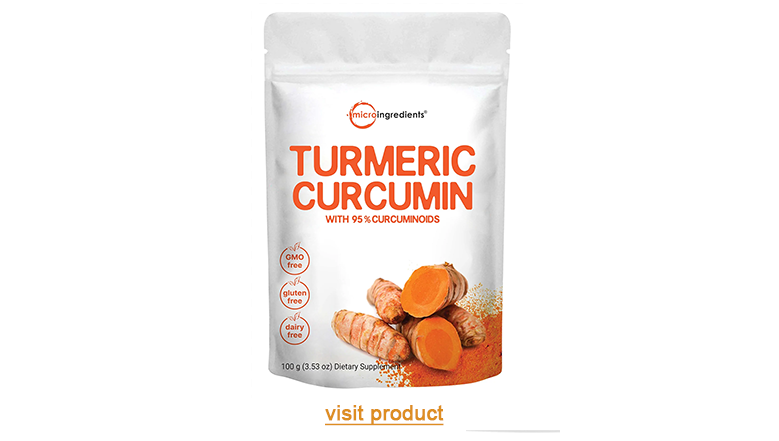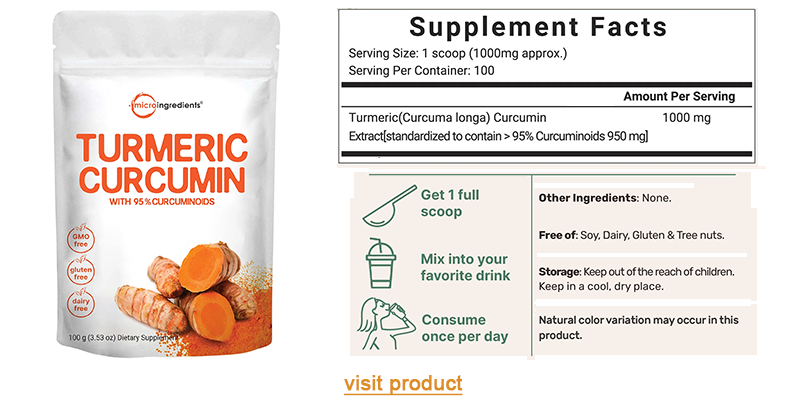Is the miraculous solution to clearer, lighter skin stored in your spice cupboard? One of the most buzz-worthy skincare solutions currently is turmeric, a gold colored spice that doesn’t simply taste delicious, it also delivers a number of important skin perks, according to skin experts.
What Is Curcumin (Turmeric)?
Turmeric (sometimes called Curcuma Longa) is a plant similar to ginger that’s frequently used as a spice all over the world — specifically in South Asia. You will detect it by its bright golden yellow color. Turmeric has been widely used for thousands of years in Ayurvedic healthcare and as a preventive healthcare supplement. Ayurveda is the natural and organic technique of medicine that started in India.
The bright yellow color of turmeric is a result of the active constituent curcumin. Curcumin is a powerful anti-inflammatory (impedes inflammation), antimicrobial (hinders the spread of microorganisms), antineoplastic (obstructs the formation of growths that may possibly change into cancer) and antioxidant (substances that attack harmful free radicals). So yes, curcumin is a rather huge deal!
Turmeric (Curcumin) for Treating Hyperpigmentation
Hyperpigmentation is a commonplace issue that turns various spots of the skin darker than others. “Hyper” suggests increased, and “pigment” signifies color. Hyperpigmentation can occur as brown, gray, black, pink, or red spots or patches. The areas are often times given the name age spots or sun spots.
Skin gains its tone from a compound named melanin — a pigment created by skin cells named melanocytes. When those skin cells are impaired or damaged, they will generate excess melanin. The melanin in many cases can bunch up, which causes that region to appear darker. As a consequence a quite common trigger of hyperpigmentation is an increased formation of melanin.
A variety of studies have indicated that curcumin has the ability to diminish hyperpigmentation. Mainly it is the curcumin in turmeric that is the determining element in these studies to minimize the activity of tyrosinase, an enzyme required for melanin production. Although this dimension hasn’t yet been confirmed in clinical studies, it bends toward the premise that frequent topical applications of curcumin should gently lighten your skin. Gradually, as dark skin cells are ultimately exfoliated, they will be replaced by cells that are of one’s normal skin color.
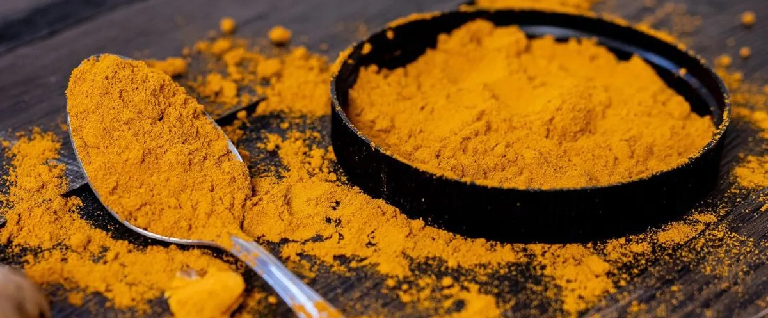
Turmeric for Treating Melasma
Many circumstances have the potential to increase the output of melanin in your body, contributing to hyperpigmentation. Melasma is one very commonplace cause of hyperpigmentation. Melasma is a skin disorder that results in areas and patches, generally on the face, which are darker than ones normal skin color. While this condition is ultimately innocuous, it tends to make a lot of folks come to feel self-conscious.
Melasma is a skin ailment characterized by spots, or brown or blue-gray patches, normally on the forehead, nose, cheeks, and upper lip. Due to the fact changes in hormones during pregnancy can result in melasma, it’s often described as the “mask of pregnancy.”
Melasma is a relatively prevalent skin disorder, chiefly involving pregnant women. Anywhere around 16% to 40% of pregnant women develop it. Although melasma can also result from too much sun exposure, the much more prevailing cause is hormonal variations from pregnancy or birth control pills, which means females are a great deal more prone than men to develop this skin condition. Melasma typically happens between 20 and 50 years of age.
The first thing you need to do to treat your melasma is to make sure that it doesn’t get any worse. Do this by avoiding birth control that includes hormones and the sun. Should you be subjected to the sun, make sure to use sunscreen with a SPF of 30 to 60 applied every few hours. Taking these measures might prevent the melasma from growing more intense.
To actively combat melasma (or hyperpigmentation of any cause), test out a topical skin lightening serum like Meladerm from Civant Skincare or a turmeric mask.
Turmeric consists of curcumin, a potent antioxidant that lightens your skin. Using a one part to two part proportion, blend either water or milk with turmeric powder, and apply the mixture on the darker areas. Let the compound totally dry (about 15 minutes) and then rinse it off using warm water. Repeat daily until the discoloration has faded.
Apply Curcumin Topically for Skin Lightening
The benefits of using curcumin for lightening the skin are numerous. Applying curcumin on the face can help calm skin rashes, lighten dark spots and hyperpigmentation, treat acne, and brighten skin tone. Although not an instantaneous solution, topically administered turmeric will help with discoloration if used consistently over time.
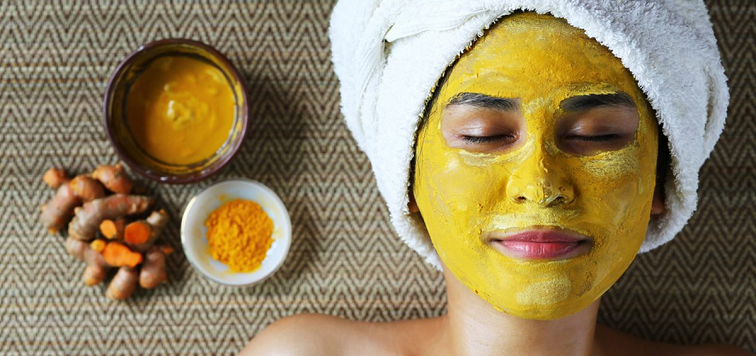
Turmeric Masks Topically Lighten the Skin
You can easily find turmeric-laced skincare remedies to purchase, but you can also easily and inexpensively prepare your own DIY treatment. A turmeric mask is the ideal method to use turmeric topically.
All turmeric masks have curcumin powder as their prime component. Getting a big container of turmeric powder is much more convenient and less expensive (per amount purchased) than buying curcumin in pill or capsule form. It is hassle-free to take a scoop of the powder from the resealable container and blend it with a liquid to create a paste to spread on the darkened spots on the body. Note that since it is the curcumin that’s the active (most usable) aspect of the turmeric root, nutritional supplements are often labeled as “Curcumin” instead of “Turmeric.” A nutritional supplement could even be marketed with both these names, as in “Turmeric Curcumin.” That’s the text Microingredients uses for their powder supplement.
To create a turmeric mask all you have to do is combine 1 teaspoon of turmeric powder with one teaspoon of lemon juice. You can optionally also mix in 1 teaspoon of agave syrup or honey. Both honey and agave syrup will help moisturize and hydrate your skin. Lemon juice carries effective skin bleaching attributes so it lightens complexion. Lemon juice also helps to eliminate dark spots.
The resulting concoction is then applied onto your face with the help of a cotton ball and left to sit for up to 20 minutes. Afterwards rinse with tap water. Apply this mask daily for ideal results.
Taking Turmeric (Curcumin) Orally for Skin Lightening
As you’ve read above, curcumin powder can be used externally for skin lightening by applying turmeric powder on your skin by means of a mask. Alternately, turmeric can be utilized internally for the same goal. Taken orally, turmeric can decrease undesirable melanin formation. This means turmeric advantages for skin lightening will be had by using the supplement inwardly and outwardly.
Turmeric Tea to Lighten Skin
Turmeric teas are a frequent way for consuming turmeric due to the fact the flavor is delicate and soothing, and the overall health perks are close to the eating of the whole plant in cooked solid food. The same turmeric powder that one would buy to use for a turmeric mask can be used as the basis of a turmeric tea.
Studies indicate that the conventional curcumin dosage per day is around 600 mg to 2000 mg, although studies working with up to 9 grams per day demonstrated no serious side effects. Some powdered turmeric health supplements include a small measuring scoop that measures 1000 mg (1 gram), helping to make it straight forward to brew a mug of turmeric tea. To brew a tea that consists of a 1000 mg serving of curcumin, just combine one scoop of curcumin powder to boiling water and let it steep for 5 to 15 minutes and then strain before consuming. To spruce up the flavor, the curcumin can additionally be partnered with additional spices like lemongrass, cinnamon, and fresh ginger root.
Though turmeric tea is the most prevalent way to ingest turmeric, you can incorporate curcumin powder in almost any beverage you want. If your preference is a shake or smoothie, then just add a scoop or two in your currently preferred drink.
When you consume turmeric is up to you. The curcumin (turmeric) will not work any better or worse based upon when you take it. Turmeric isn’t a stimulant, so should you wish to take your drink before bed instead of in the morning to begin your day, that should certainly be fine.

